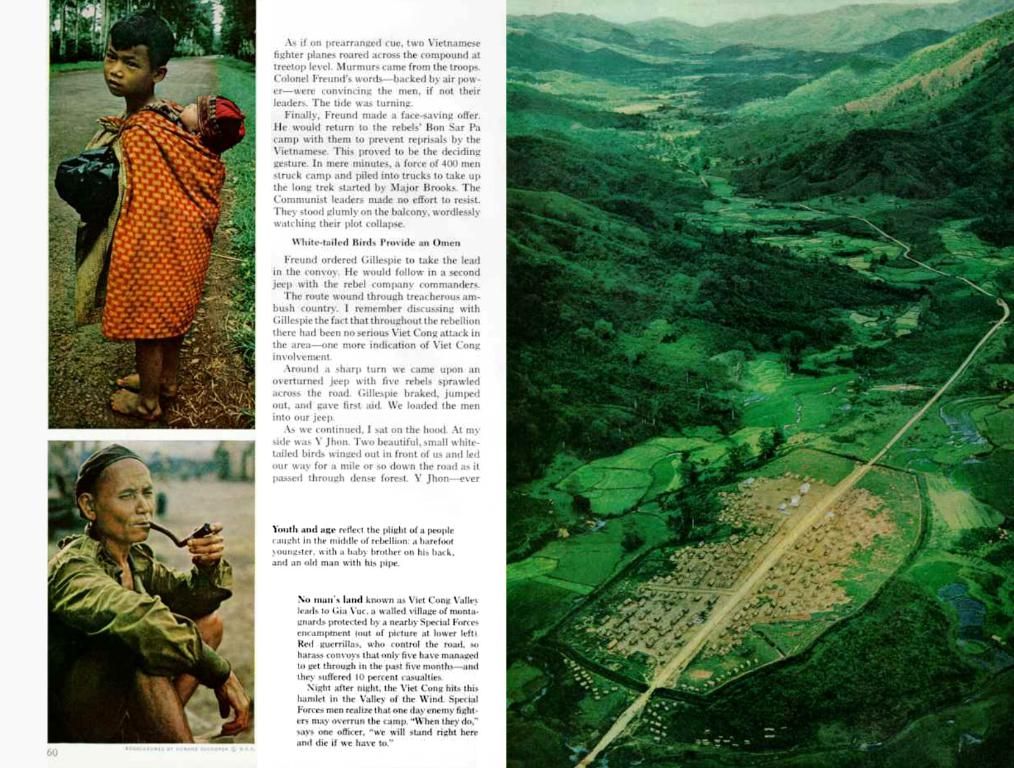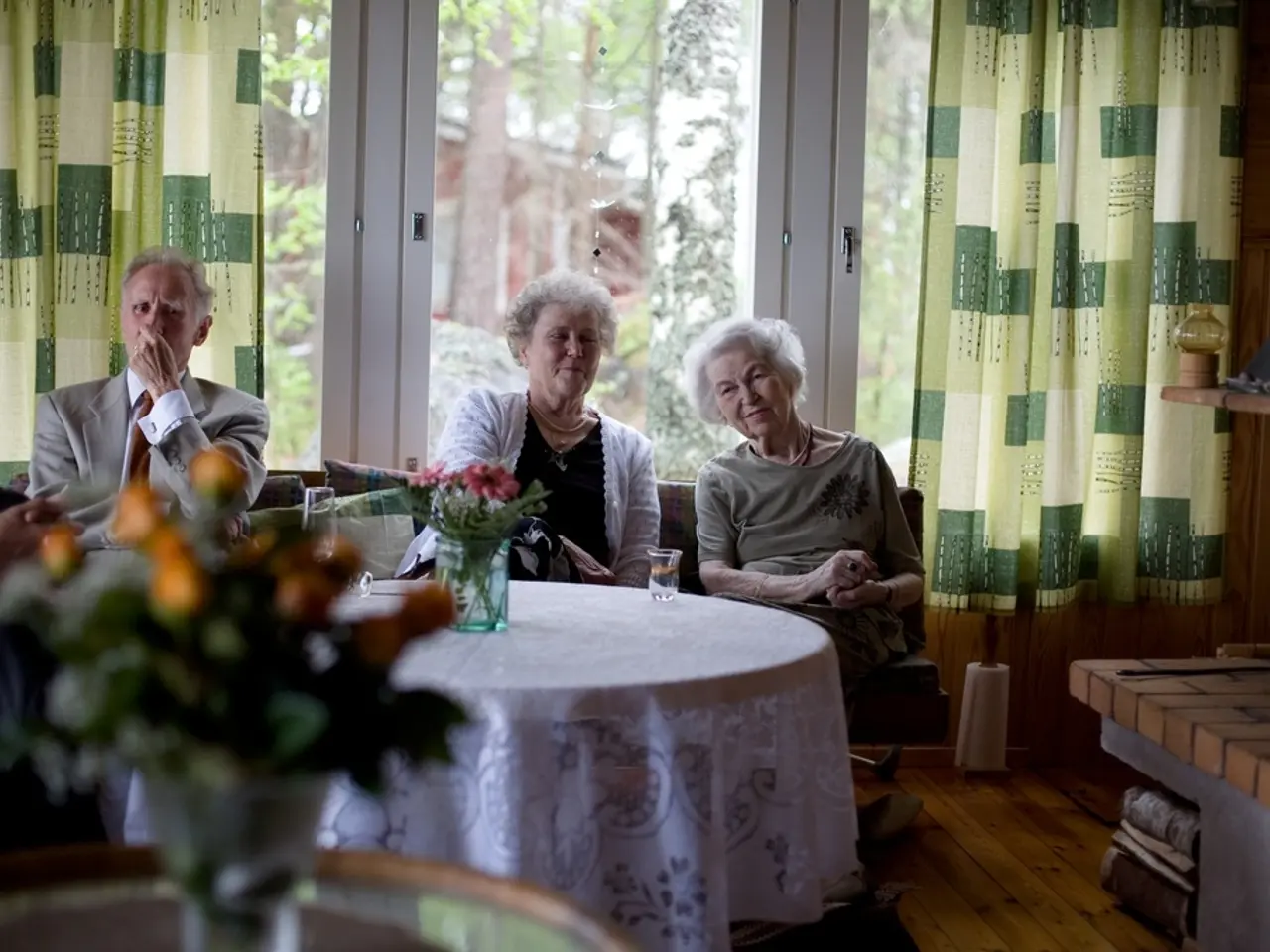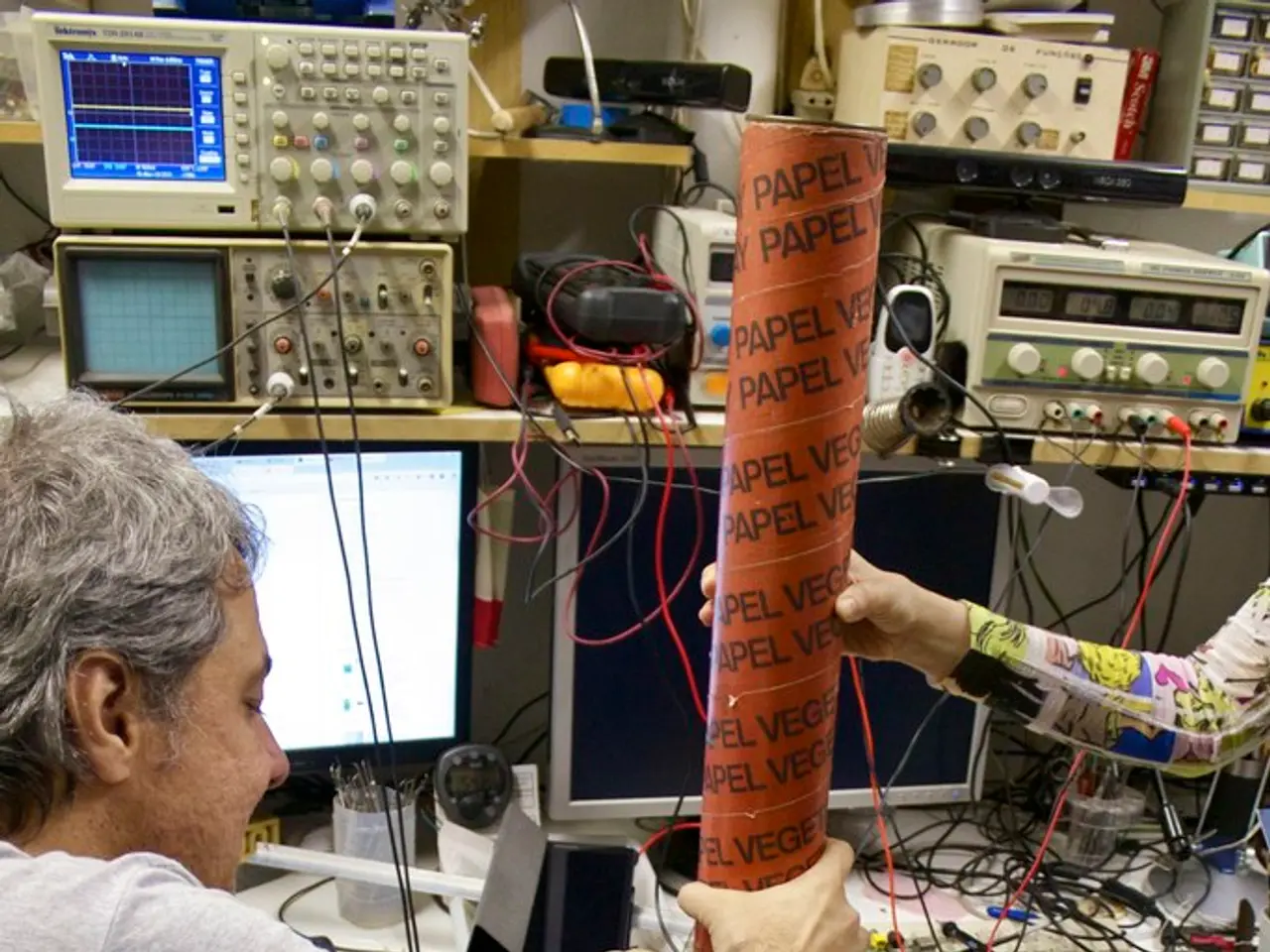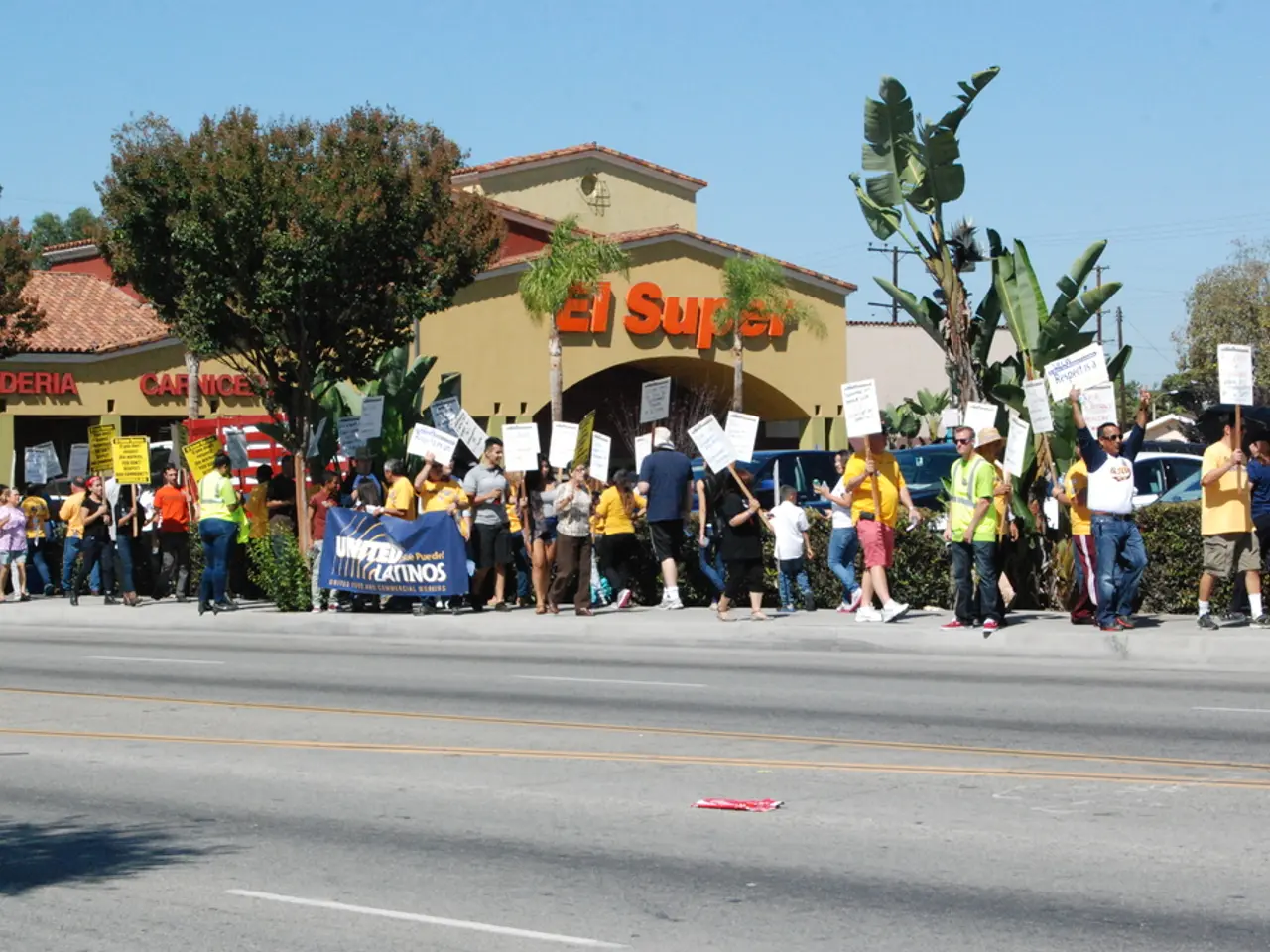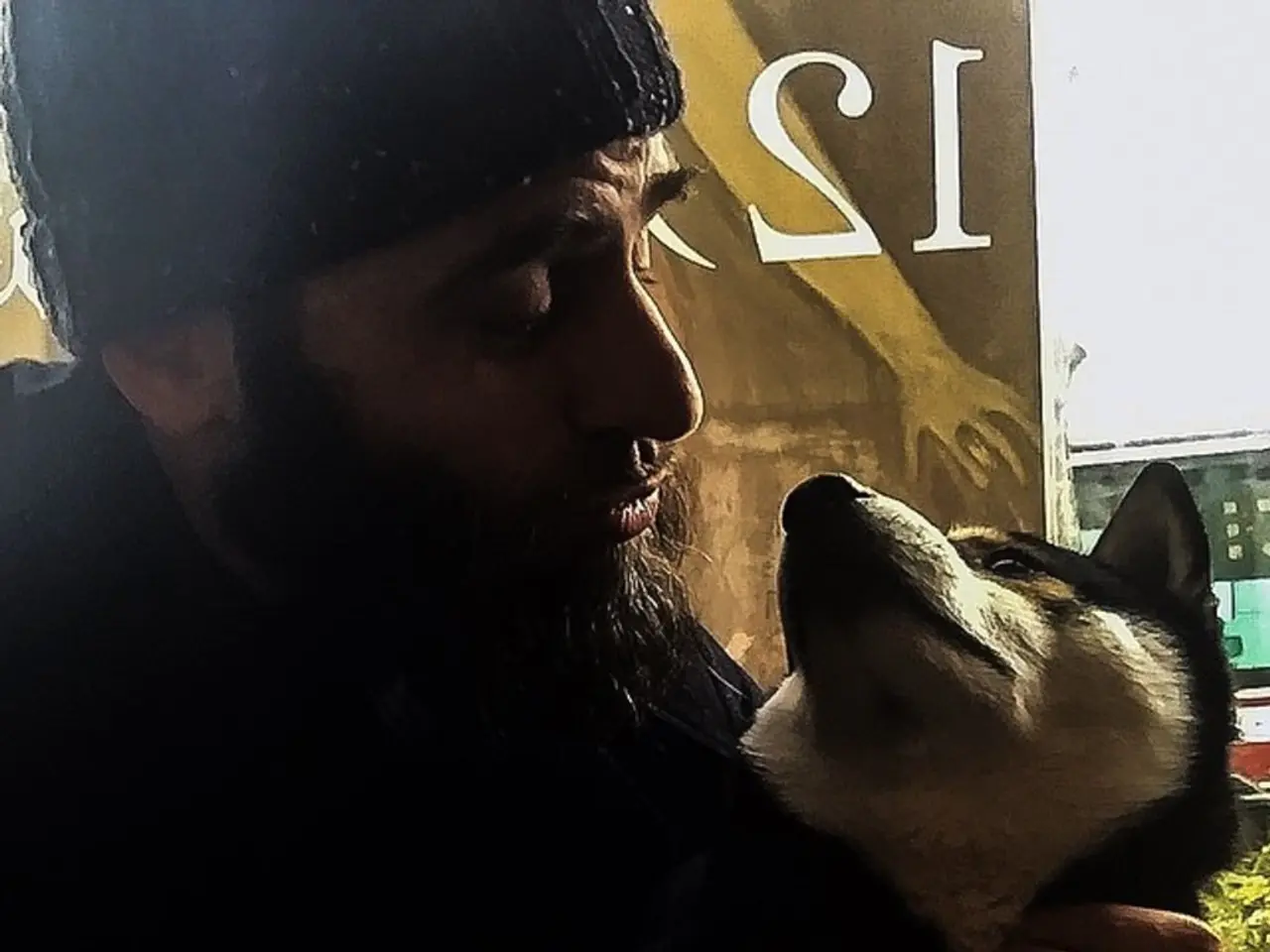Medical examination focusing on cancer detection and treatment.
The Crucial Role of Peer Consultants: Unearth the Support System for Cancer Patients
Embrace a different kind of healer, the peer consultant. Unlike medical professionals, these individuals have wrestled with cancer or are currently in remission. In their darkest hours, they can provide support and guidance on tackling emotional turbulence and navigating tricky situations. Meet Polina Yurchenko, the visionary behind the Onco Senim Fund and an oncology peer consultant, who shares her insights into the project.
Born out of Struggle: The Project's Origins
It usually springs from a personal story. When I was diagnosed with cancer, I found myself lost in a sea of confusion with little information about what to expect, possible scenarios, or even the assumption that the diagnosis was a death sentence. I sought comfort, but it was elusive.
A friend then told me about peer consultants in Russia. I hadn't heard of them before. After researching, I decided that I wanted to become one after my treatment. I completed the training in Russia and understood the power of this work. That's when I envisioned a similar support system in Kazakhstan, as this help benefits both patients and society at large.
At that time, there were no such specialists in Kazakhstan. As far as I'm aware, peer consultants had worked only with HIV patients. However, oncology had no such support until now.
A Support System in the Making: Providing Training for Future Consultants
On our journey, we studied the experiences of our colleagues to determine what they discuss, teach, and the methods they employ. Since there's no unified community of foundations in Kazakhstan to create a code of ethics for peer consulting, we based ours on the Russian code. This provided us with an understanding of the essential aspects and aided us in designing our training system.
Our training covered several areas. Initially, we focused on interacting with doctors. This is crucial because consultants must comprehend the medical aspects and communicate accurately. Second, we delved into collaboration with psychologists and specialists experienced in patient interactions to learn effective communication strategies, avoid conflicts, and properly support patients in emotionally taxing situations.
Additionally, we integrated fundamental principles of equal consulting, drawn from our Russian counterpart, but tailored them to take into account local peculiarities, such as cultural, religious, and psychological nuances. These factors play a significant role and are vital in creating an effective support system.
It's noteworthy that our course lacks the traditional academic or complex format. Instead, it relies on the personal experiences of people who have fought oncological diseases. Our objective is to help these individuals structure their experiences so they can effectively share them with others without emotionally draining themselves or causing themselves harm.
We put considerable effort into addressing matters of personal boundaries and respect: how not to breach them in working with patients, how to construct dialogue based on diagnosis acceptance stages, and how to support people facing differing emotional states. These things, while often intuitively understood by an empathetic individual, demand additional discussion to ensure that consultants approach their work consciously.
During the training, we scrutinized practices used in other countries and familiarized ourselves with international consulting standards. It wasn't just about adopting someone else's experience, but adapting universal principles that shape the work of equal consultants worldwide.
Growth and Development: Our Small but Mighty Team
Our project is still new, with training taking place in the second half of September 2024. Currently, 14 individuals have completed the course, but only 8-10 of them are ready for consultation duties. Our team is still small, which is to be expected as society is still unfamiliar with this support format, and the demand for equal consulting is only gradually forming.
Though we aren't currently overwhelmed with requests that stretch beyond our capabilities, raising awareness is still a primary goal. Our goal is for as many people as possible to know about the existence of equal consulting and that they can seek help when needed. The more requests we receive, the more consultants we can train, ultimately enabling us to expand our operation and cover a broader spectrum of oncological diagnoses.
Scheduling Consultations: Flexible and Friendly Approach
We offer various scheduling options to accommodate everyone's preferences, considering age, digital literacy, and communication preferences.
- Through WhatsApp: Our most popular method: patients simply message us, and we respond promptly.
- Google Form: A QR code on our Instagram page leads to a form where patients fill out their contact details, purpose of the request, and other important information. We then contact the patient.
- Instagram Direct Messages: Patients can reach out to us directly in their messages, and we'll assist with scheduling.
While automated scheduling methods (like Google Forms) are convenient for our consultants, they aren't yet widely used. They permit us to swiftly see critical patient details, such as diagnosis, age, request, and immediately assign the case to the most suitable consultant.
Consultation Process: A Seamless Journey
When we receive a request alongside a diagnosis and brief issue description, our team discusses who among our consultants can and wants to handle the case. We consider both availability and the consultant's genuine interest, as working with patients demands emotional involvement and a willingness to help.
Once a consultant is assigned, they reach out to the patient to schedule a date and time. Consultations typically take place online using messaging platforms or other suitable tools.
The average consultation lasts 20-25 minutes, but the duration varies based on the situation and comfort levels of both parties. If a consultant requires more information during a consultation, they may schedule a follow-up to provide accurate and precise information. Our objective is to make the consultation process as convenient and effective as possible for both patients and consultants.
Repeat Consultations: Support When You Need It Most
Yes, patients can schedule multiple consultations if needed.
Unlimited Consultations: Empowering Patients to Take Charge of Their Health
No, there aren't any specific limits on the number of patient consultations. If someone needs consistent support, that option is provided. For example, some patients arrange for regular calls every couple of weeks to discuss current issues. In contrast, there are also those who only come once, receiving the necessary information and choosing not to return for further communication.
It's imperative to emphasize that the initiative for interaction always lies with the patient. Consultants do not initiate communication to avoid violating personal boundaries and inadvertently exerting pressure.
Recent Achievements: Making a Difference in Patients' Lives
Since the project began in September 2024, consultants with some experience in large communities have been conducting an average of 15-20 consultations per month. Following the conference held on February 4, the influx of requests increased, with approximately 35-40 requests processed in the 1.5 months following the event.
Consultations are provided nationwide in Kazakhstan, with the main flow of requests stemming from the regions. This is because patients in large cities like Astana and Almaty already have access to various informational resources, including specialized chats and communities. Statistics primarily focus on requests that go through the fund, while consultations within individual communities are not included in the overall fund reporting.
Questions on Patients’ Minds: Addressing Common Concerns
Inquiries often arrive in various emotional states, which is understandable given the complexity of the situation at hand. Most cases involve difficult situations where patients and their families desperately need help and support.
Relatives of patients dealing with advanced stages of the disease frequently call, unsure of what to do next. For example, there are instances where state medical institutions reject treatment at late stages, leaving the family to cope with the problem alone. This is a particularly pressing issue for large families, elderly patients, and those in need of palliative care.
There are also situations where individuals aren't accepted into hospices and must remain at home without proper care. In such instances, friends or relatives try to locate specialists who could arrange for palliative care.
In addition, some people seek out specialists for rare types of oncology, as information about these is often scarce in Kazakhstan. Our consultants attempt to connect with doctors, clarify their recommendations, and aid the patient in navigating the situation.
The primary focus is on offering free assistance to ensure that patients can receive a consultation without bearing any additional financial burden.
Who Seeks Our Help: Demographics and Beyond
The majority of inquiries come from people aged 50 and above. However, there are also patients aged 35-40, accounting for roughly 20-25% of total inquiries.
Success Stories: Transforming Lives One Consultation at a Time
Consultants refrain from making bold claims about drastically altering someone's life. However, consultations significantly impact how patients and their families perceive their situations, helping them better process information, find resources, gain support, and make informed decisions. Thoughtfully centered guidance can bring clarity during confusing times and empower patients and families to navigate their journey with more confidence.
The Future of Peer Consulting: Turning the Tide
Today, the patient community is evolving, becoming more knowledgeable and informed. People are increasingly reaching out for help, understanding the importance of timely and accurate information.
We observe the active growth of patient chat rooms and forums where participants share stories, ask questions, and offer each other support. This is a clear indication that there is a real demand in society for such platforms and professional patient support. Yet, it's crucial that such initiatives evolve correctly and responsibly, ensuring that patients receive reliable information from competent sources.
Although the patient community may not transform into a nationwide mass movement, it will no doubt find its niche and bring notable benefits to those in need of support.
The onset of the Onco Semim Fund's peer consulting program was inspired by personal struggle, particularly in the arena of health-and-wellness, specifically mental health, as its founder, Polina Yurchenko, sought solace when grappling with a cancer diagnosis. With the aim of establishing a similar support system in Kazakhstan, this innovative approach draws upon the unique experiences of individuals who have conquered oncological diseases (science).
The training provided for future peer consultants encompasses crucial areas such as effective communication with medical professionals, collaboration with psychologists, and acquiring essential principles of equal consulting, all of which are tweaked to suit Kazakhstan's cultural, religious, and psychological landscapes (science and health-and-wellness). Emphasis is also placed on holistic development, ensuring that these consultants are adequately prepared to navigate emotional turbulence and provide meaningful, supportive guidance (mental-health).
